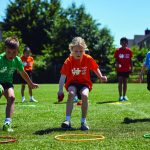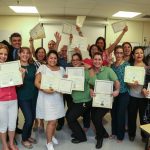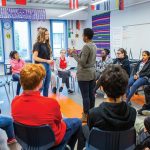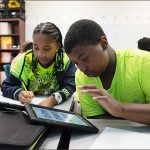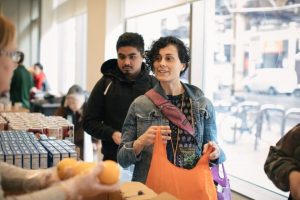
Introduction: Pioneering the Journey to Higher Education
Embarking on the journey to higher education as a first-generation college student is a remarkable feat. These trailblazers often face unique challenges and opportunities as they navigate uncharted territory. This article delves into strategies for first-generation college students to succeed, offering insights, real-life examples, and practical advice to empower them in their pursuit of academic excellence and personal growth.
The First-Generation Experience: Challenges and Triumphs
First-generation college students, those whose parents did not attend college, often carry the hopes and dreams of their families while carving out a new path for themselves. The words of former First Lady Michelle Obama encapsulate this sentiment: “Don’t be afraid. Be focused. Be determined. Be hopeful. Be empowered.”
Cultivating a Growth Mindset: Embracing Challenges as Opportunities
Fostering Resilience
A growth mindset, the belief that abilities and intelligence can be developed through effort and learning, is a powerful tool for first-generation college students. Embracing challenges as opportunities for growth fosters resilience and determination. The journey of American media mogul Oprah Winfrey, who overcame significant adversity to achieve success, exemplifies the spirit of resilience.
Seeking Support
Recognizing the value of seeking support is essential. First-generation students should actively engage with academic advisors, professors, and peer mentors. By seeking guidance, asking questions, and leveraging available resources, they can navigate academic challenges and make informed decisions.
Time Management and Organizational Skills: Keys to Academic Success
Creating a Study Schedule
Time management and organizational skills are vital for juggling coursework, assignments, and extracurricular activities. First-generation college students can benefit from creating a study schedule that allocates time for classes, studying, and self-care. This practice mirrors the discipline advocated by American author and motivational speaker Brian Tracy: “Develop a habit of letting small bad things happen. If you don’t, you’ll never find time for the life-changing big things.”
Utilizing Productivity Tools
Utilizing digital tools, such as calendar apps, task managers, and note-taking applications, streamlines organization and enhances productivity. These tools help first-generation students stay on top of assignments, deadlines, and commitments, allowing them to optimize their time and achieve academic success.
Effective Study Strategies: Maximizing Learning Outcomes
Active Learning Techniques
Employing active learning techniques, such as group discussions, problem-solving exercises, and concept mapping, enhances comprehension and retention of course material. First-generation students can collaborate with peers, engage in discussions, and apply their knowledge in real-world contexts, reinforcing their understanding.
Balancing Depth and Breadth
Balancing the depth and breadth of learning is crucial. While diving deep into major-specific courses, first-generation students can also explore interdisciplinary subjects. This approach broadens their knowledge base and cultivates critical thinking skills, aligning with the words of American author and educator Margaret Fuller: “If you have knowledge, let others light their candles in it.”
Building a Supportive Network: The Power of Community
Connecting with Peers
Forming connections with peers who share similar experiences provides a sense of belonging and camaraderie. First-generation college students can join student organizations, attend networking events, and engage in social activities to build a support network that encourages mutual growth and success.
Engaging with Faculty
Building relationships with faculty members can have a profound impact on academic and personal development. First-generation students can attend office hours, seek mentorship, and engage in academic discussions with professors. These interactions foster a supportive environment and open doors to opportunities for research, internships, and professional development.
Embracing Cultural Capital: Celebrating Diversity and Identity
Preserving Cultural Identity
First-generation college students should embrace their cultural heritage and identity. Celebrating diversity enhances personal growth, enriches the academic experience, and contributes to a vibrant campus community. As American poet Maya Angelou once said, “We all should know that diversity makes for a rich tapestry, and we must understand that all the threads of the tapestry are equal in value no matter their color.”
Finding Scholarly Empowerment
Exploring academic interests that align with cultural heritage empowers first-generation students to incorporate their unique perspectives into their studies. This process enriches coursework, research projects, and contributions to classroom discussions, fostering an inclusive learning environment.
Conclusion: Forging a Path of Excellence and Impact
Navigating the higher education landscape as a first-generation college student requires resilience, determination, and a commitment to personal growth. By cultivating a growth mindset, honing time management skills, embracing effective study strategies, building a supportive network, and celebrating cultural identity, first-generation students can excel academically and contribute meaningfully to their communities. The journey of educational advocate and former First Lady Michelle Obama echoes the sentiment that guides first-generation students: “Success is only meaningful and enjoyable if it feels like your own.” Through their dedication and pursuit of excellence, first-generation college students forge a path that is uniquely their own, leaving a lasting impact on themselves and the world around them.



